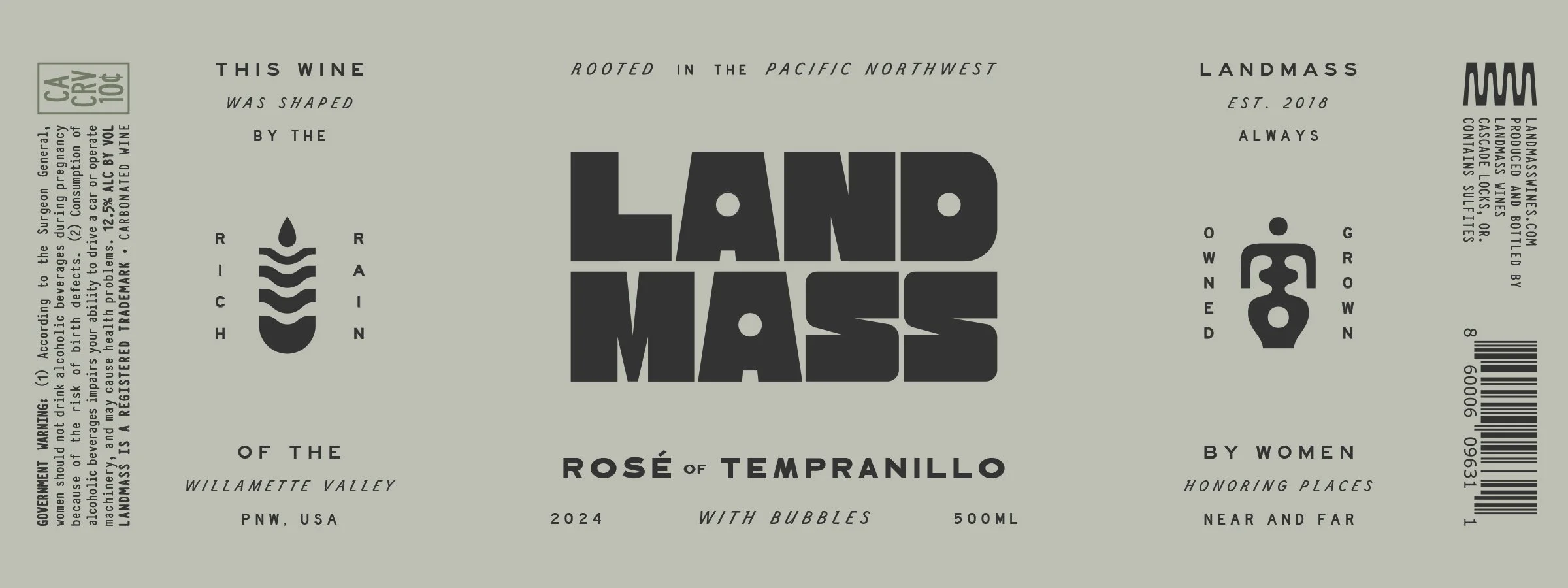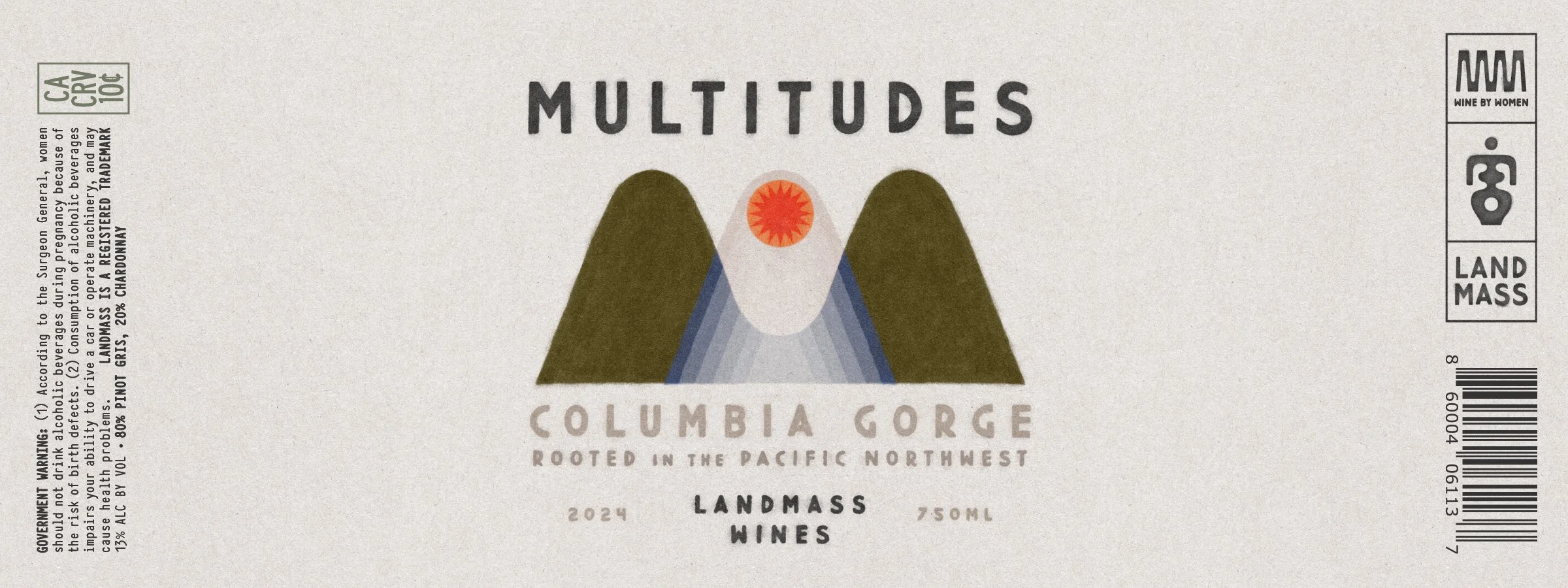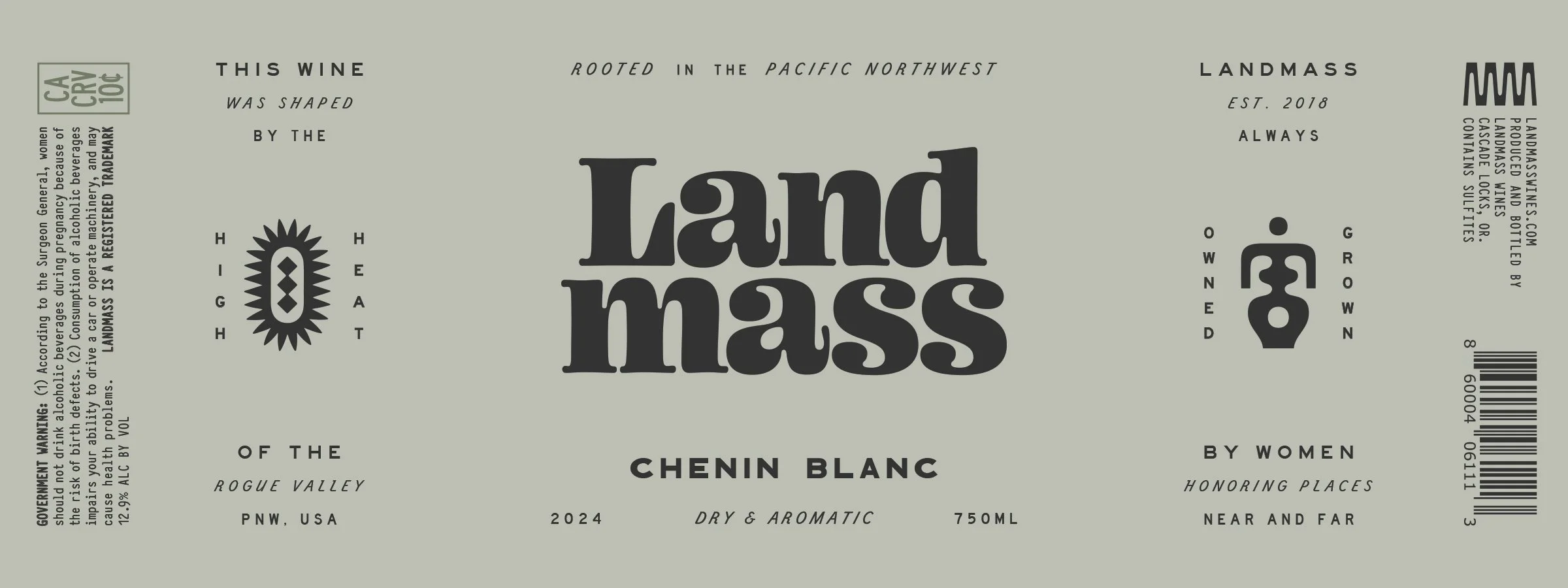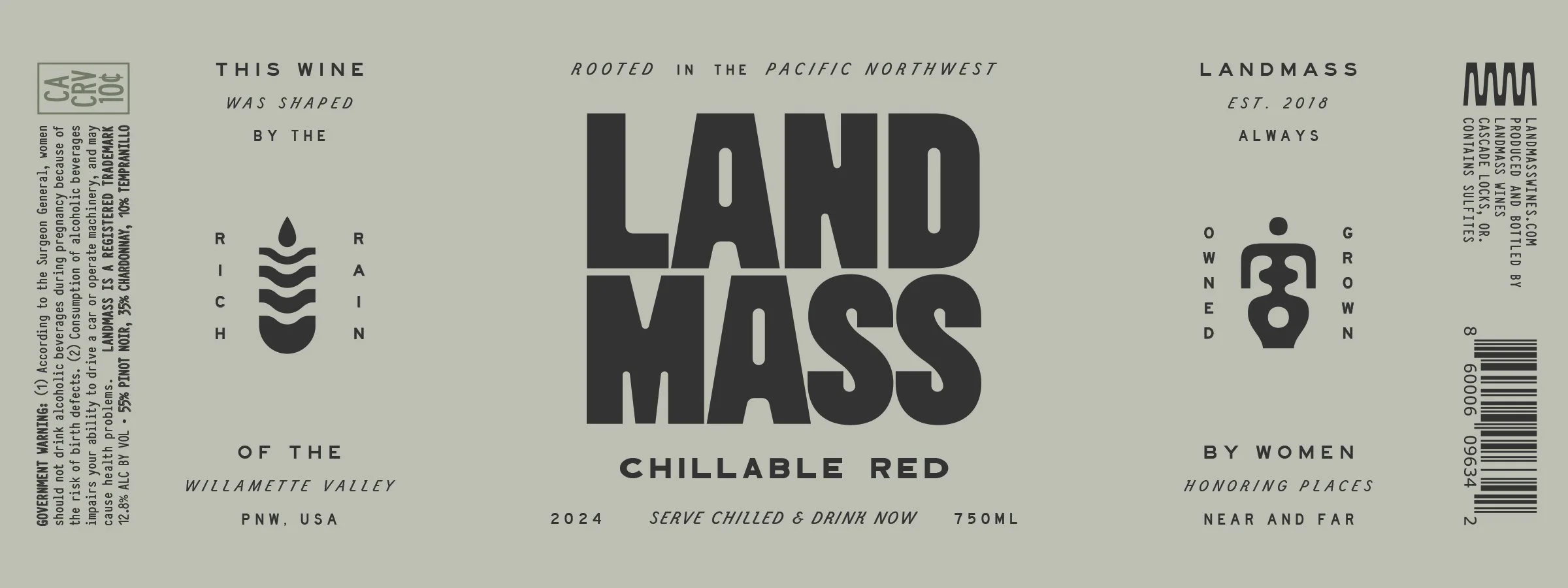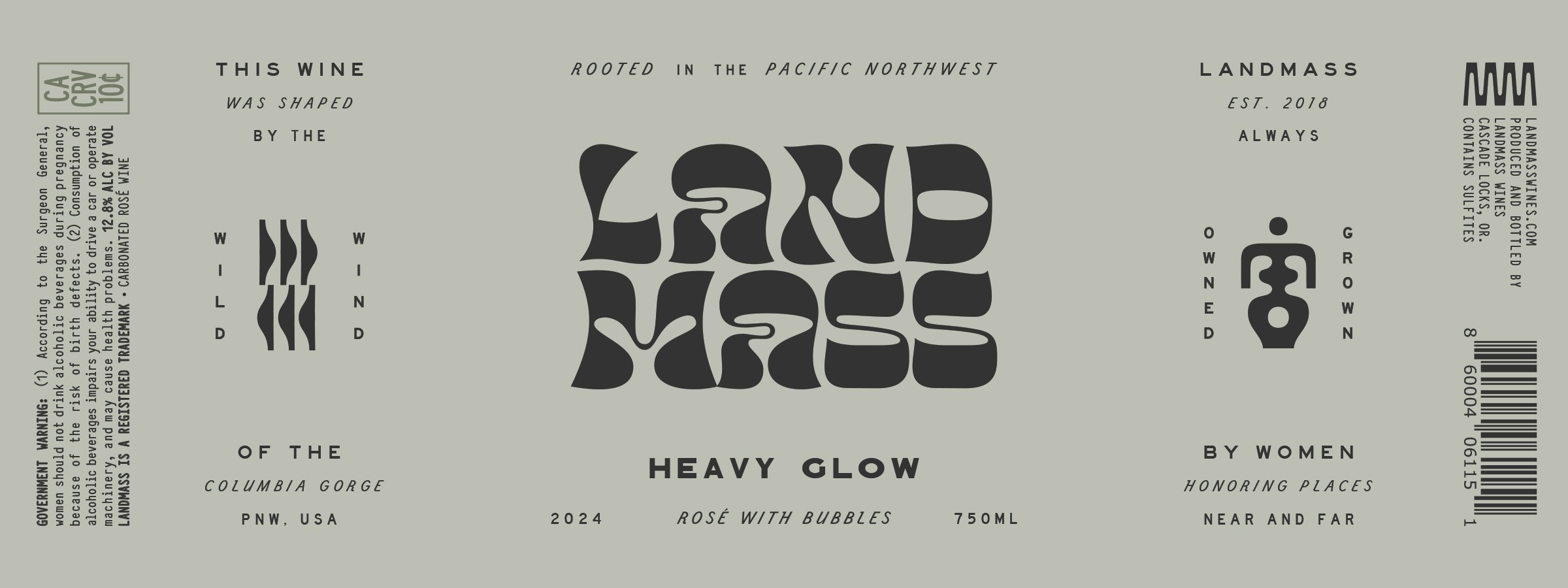The 2025 Landmass labels got a refresh. Here’s what’s new:
Regional Callouts
With a name like Landmass, we felt it was important to talk about how distinctly different each region is and how our specific landmasses are shaped and guided by their surroundings. Each region is given an icon that calls out its core influence.
Moving away from our pink pastel that was starting to feel a little too “wedding invite”, our new colorway feels more grounded in earthtones, emphasizing the land. This custom greenish-grey color is aptly named, Columbia Fog.
Earth-Driven Colorway
Logos and Marks
Our MM (Melaney and Malia) mark got a refresh. This new mark feels very structured and mimics the peaks and valleys of our vineyard sites.
Landmass is 100% owned and operated by women. This woman logo nods to ancient artifacts and is understated yet impactful.
Fonts
To compliment our new colorway and icons, we have refreshed our supporting fonts to feel timeless and structured.
Labels With Notable Changes:
Formerly known as “All Eyes”, this wine has dropped its fanciful name and can now be referred to as “Sparkling Rosé of Tempranillo”. What began as a quirky title started to feel a bit juvenile and explaining its origin felt clunky. Folks often called this wine simply by its varietal and we thought it was time to trim the fat.
The wine now states “with bubbles” on the front to help note that it is carbonated and not traditional method sparkling.
Multitudes now displays a darker, bolder title as well as a darker call out of Landmass Wines on the bottom.
Hence its name, this wine will always be a blend - whether that is of vineyards, varietals or both.
Our 2024 Multitudes is a blend of 20% organic Chardonnay and 80% Pinot Gris.
Quick Looks:
Noteworthy Updates:
The following 2024 wines are now proudly made with 100% organic fruit:
RU OK Pet Nat
Gorge Chardonnay
Sparkling Rosé of Tempranillo
Chillable Red
Two Sides Rosé
Grüner Veltliner
The following 2024 wines are now proudly made with partial organic fruit:
Multitudes
Heavy Glow
All other wines use fruit sourced from vineyards who practice l.i.v.e or sustainable farming and do not use glyphosphate.


